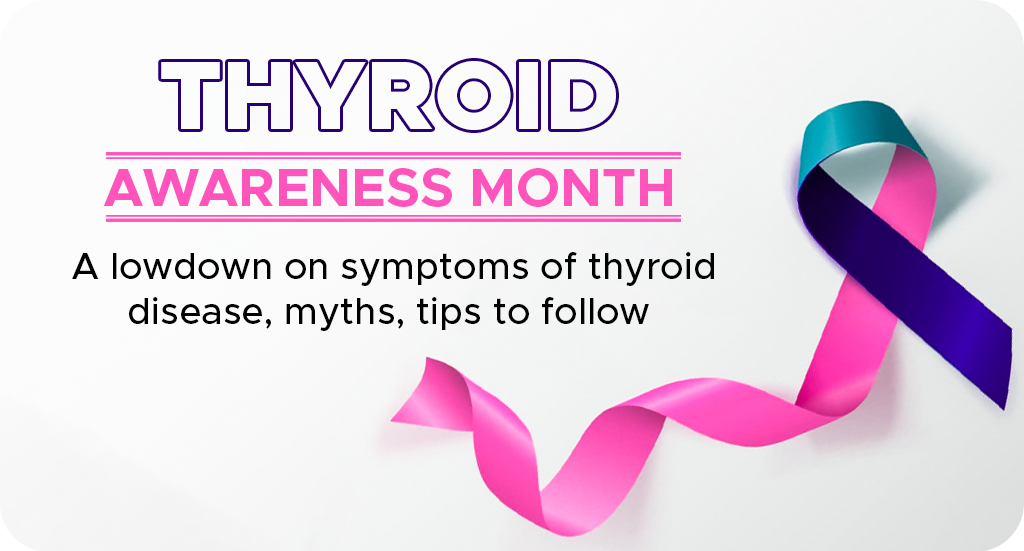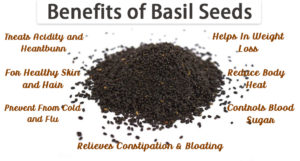Thyroid imbalance can impact one’s health and wellbeing in numerous ways. The month of January is celebrated as the Thyroid Awareness Month to spread information regarding the health issues arising because of abnormal functioning of the thyroid gland, prevention of thyroid-related diseases and beyond-medicine approaches. One in 10 persons in India suffers from thyroid problems (hyperthyroid, hypothyroid or thyroid cancer). Shockingly, over 60% of the people are undiagnosed and remain unaware of their symptoms.
What exactly does the thyroid gland do?
The thyroid is a butterfly-shaped gland found at the front of the neck below the Adam’s apple. The task of a thyroid gland is to secrete hormones that play their role in various vital body functions. The abnormalities happen when the thyroid gland produces too much of the thyroid hormone or too little that imbalances the functionality of crucial organs.
Did You Know?
Women suffer more from thyroid malfunction than men
Hypothyroidism Symptoms
Hypothyroidism or low levels of thyroid hormone can cause an array of signs and symptoms:
Common symptoms:
- Fatigue
- Unexpected weight gain
- Feeling colder than normal
- Joint pains and slow metabolism
- Hair Loss
- Dry and itchy skin
- Constipation
Hyperthyroidism
When the thyroid gland produces too much thyroxine, various symptoms may appear:
- Muscle weakness
- Sudden weight loss
- Trembling hands
- Difficulty sleeping
- Increased appetite
- Fast heartbeat with palpitations
Let’s bust some myths around thyroid disease:
#1 Only women suffer hypothyroidism
Fact
Both men and women can get hypothyroidism. However, the chance of women getting hypothyroidism is 5 to 8 times more than men developing a thyroid disorder.
#2 Women with hypothyroid condition cannot become pregnant
Fact
It is important to take good control of hypothyroidism if you are planning or pregnancy. Furthermore, you have to consider regular monitoring.
#3 You’ll get goitre if you have a thyroid disorder
Fact: No. The majority of people will never develop goitre (enlarged thyroid gland) if they have a thyroid disorder
#4 Treating thyroid with iodine or salt is more beneficial than the prescribed medicine
Fact
It is not advisable to take iodine supplements without consulting your doctor as it might worsen the situation.
In what ways can you keep the thyroid gland healthy?
Several nutrients are best for maintaining good thyroid health:
Iodine
It is a vital mineral required to make thyroid hormones. It is best to close the iodine gap by including iodine-rich foods in the diet like fish, dairy, and eggs.
Selenium
This mineral is required to activate thyroid hormones which then can be used by the body. It has antioxidant properties that help fight free radicals and protect the thyroid gland. Foods like eggs, tuna or sardines can be included in the diet.
Zinc
Similar to Selenium, Zinc helps activate the thyroid hormones. It also regulates Thyroid Stimulating Hormone (TSH), a hormone that tells the pituitary gland to secrete thyroid).
Hypothyroidism Diet
Foods to eat: You can include foods like eggs, meat, fish, berries, bananas, quinoa, tomatoes, yoghurt, and chia seeds.
Foods to eat in moderation: Peaches, pears, strawberries. Beverages like green tea and alcohol
Make sure you eat less of highly processed foods, monitor the soy intake, and eat a balanced diet to get your hypothyroidism in control.
Hyperthyroidism Diet
Check out the list of foods you should eat and avoid if you have hyperthyroidism:
Foods to eat– Egg whites, oats, non-iodised salt
Foods to avoid– Cheese, tofu and chocolate
Ways to keep the thyroid gland healthy
• Do not follow any crash diets and take an adequate amount of sleep
• Avoid gluten-rich foods
• Make sure to add antioxidant-rich foods to your diet








